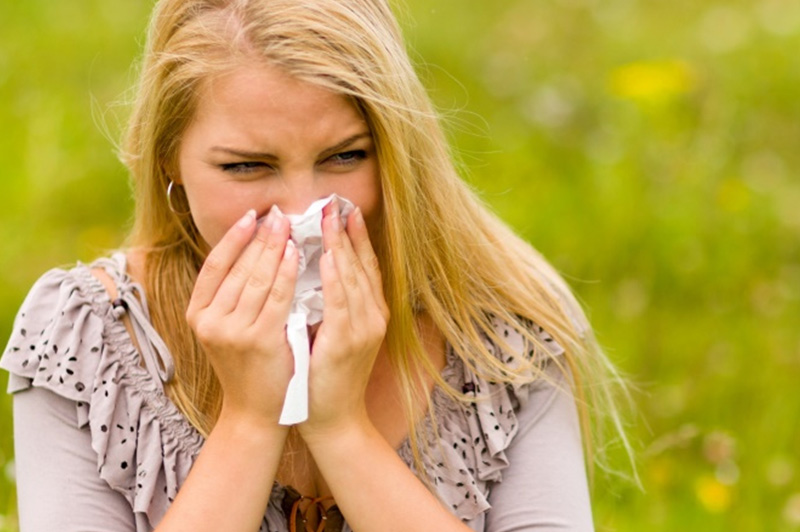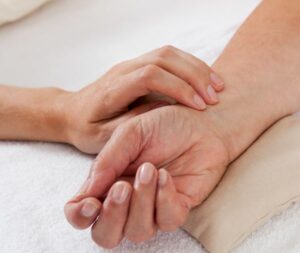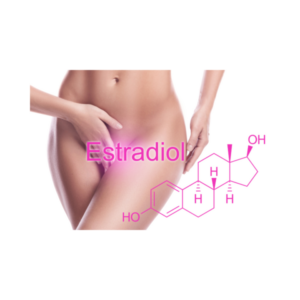
Allergic Rhinitis
Allergic Rhinitis, also known as Hayfever, is a type of nose inflammation that occurs when the immune system overacts to allergens in the air. The immune system reacts by releasing histamine and chemical mediators, causing symptoms in the nose, throat, eyes, ears, skin and roof of the mouth.
Sinusitis is an inflammatory condition of the mucus membranes that lines the sinus cavities caused by viral, bacterial, fungal or allergic reactions. Both Allergic Rhinitis and Sinusitis are common and often distressing conditions that can be difficult to resolve with antibiotics and decongestants and are therefore common conditions seen in Traditional Chinese Medicine clinics.
What causes high levels of Histamines?
We all naturally produce histamine, a compound involved in immune responses as well as regulating physiological function in the gut and acting as a neurotransmitter in the brain, spinal cord and uterus. Diamine Oxidase (DAO) is the major enzyme involved in histamine metabolism. When there is a deficiency of DAO, it becomes difficult to break down histamines, causing an intolerance.
What causes DAO enzymes to be affected?
- Certain medications can block the function of DAO enzyme, e.g. NSAIDs, antidepressants, immune modulators, antiarrhythmics, antihistamines, histamine,
- Gastrointestinal disorders, e.g. leaky gut, inflammatory bowel disease, celiac disease,
- Foods that block DAO enzymes or trigger histamine release
- Bacterial overgrowth – when food isn't properly digested, an overproduction of histamine can occur
How to increase DAO?
DAO enzyme relies heavily on vitamin B6, B12, iron, copper Vitamin C, zinc, and magnesium, so increasing intake of these compounds is important. In many cases, histamine levels are directly related to Vitamin C levels, and intake of Vitamin C will lead to less histamine in a matter of days.
What foods to avoid? (Foods high in histamines)
- Fermented alcoholic, Fermented foods: Vinegar-containing beverages (especially wine, champagne and beer), sauerkraut, vinegar, soy sauce, kefir, yogurt, kombucha, etc.
- Foods: pickles, mayonnaise, olives
- Cured meats: bacon, salami, pepperoni, luncheon meats and hot dogs
- Soured foods: sour cream, sour milk, buttermilk, soured bread, etc.
- Dried fruit: apricots, prunes, dates, figs, raisins
- Most citrus fruits
- Aged cheese, including goat cheese
- Nuts: walnuts, cashews, peanuts
- Vegetables: avocados, eggplant, spinach, and tomatoes
Histamine-Releasing Foods:
- Smoked fish and certain species of fish: mackerel, mahi-mahi, tuna, anchovies, sardines
- Processed foods of all types – Preservatives are high in histamine
These foods do not necessarily contain histamine, but they block the action of DAO, and therefore they potentiate the effects of elevated histamines.
- Alcohol
- Nuts
- Strawberries
- Bananas
- Papaya
- Tomatoes
- Chocolate
- Pineapple
- Wheat Germ
- Cow's Milk
- Shellfish
- Many artificial preservatives and dyes
DAO-Blocking Foods:
- Alcohol
- Energy drinks
- Black tea
- Mate tea
- Green tea
Low Histamine Foods:
- Cooked Meat & Poultry, Freshly Caught Fish
- Extra Virgin Olive
- Oil
- Pasture-Raised
- Eggs
- Gluten-Free
- Grains: brown rice & quinoa
- Fresh Fruits: Other than citrus, avocado, tomato, pineapple, bananas and strawberries
- Fresh Vegetables (except spinach and eggplant)
- Coconut milk, Rice milk, Hemp milk, Almond milk
- Coconut oil, Herbal teas
- Grass-fed Butter/GheeOrganic coffee
- Organic coffee
- Almond butter
- Leafy herbs
Why is Chinese Medicine so effective in treating Allergic Rhinitis?
Chinese Medicine's ability to unravel the layers that lead to disease and treat every patient individually has proven its effectiveness and allowed it to survive for over 5000 years. Studies have shown that Acupuncture and Chinese Herbal Medicine significantly improve nasal airflow and decrease nasal congestion.
Traditional Chinese herbs influence various pathological aspects in Allergic Rhinitis. These include the production of pro-inflammatory substances, such as histamine and cytokine IL-4 and IL-13, lowering IgE level or blocking antigen binding, altering the biological processes of IgE, modulating the balance of Th, or other cells by cell proliferation and differentiation, mediating cell–cell signalling and second-messenger-mediated signalling, stabilizing the cell membrane, and affecting the regulation of cellular defence response.
Chinese Medicine and the relationship between Allergic Rhinitis & Gut Health
In Chinese medicine, the spleen and Kidney are two of the most important organs for proper physiological function as they manually support and help each other. The Kidneys form what we call pre-natal Qi – this is the inherited essence from our parents.
The Spleen – this is what we cultivate through nutrition post-birth, known as Post-natal Qi or nutritional Essence. This is because the Spleen is responsible for all transformations from food and drink we take each day. Suppose the Spleen and Stomach are like a pot on a stove distilling the finest essence of food and drink into qi and blood, then the kidneys are the ultimate source of heat under the pot. When these two organs are healthy and work together, then our blood and energy (Qi) are strong, our immune and autonomic nervous system works in harmony, and our body is prepared for the changes and stresses that occur on a day to day basis. When these organs fail to support each other, then our body systems become compromised and fail to repair and regenerate efficiently.
What causes inherent Spleen weakness?
In some cases, due to inherited variability, the Spleen may be constitutionally weak and vacuous. However, in Western culture, the Spleen vacuity is often endemic because of other factors as well. First of all, a baby's Spleen and Stomach do not mature until around 6 years of age; if one either overfeeds infants or feeds them hard to digest food, this further damages the Spleen and engenders a lot of dampness and phlegm.
Over-feeding means feeding suckling infants on demand rather than on a schedule while feeding hard to digest foods too early in life means introducing solid foods too young. In addition, some foods are inherently damp or directly damage the spleen. Proper eating, rest, and exercise are the foundations of a healthy body. Chinese medicine has strong views on the effects of cold, damp foods. They are said to drain the energetic forces of the body that weaken the body over time. Cold foods such as salads, chilled iced drinks, and frozen foods should not be included in the daily diet.
Wheat and dairy products are inherently damp and, therefore, tend to engender phlegm in those with weak digestion, whereas chilled, cold and raw foods, as well as excessively sweet foods, including fruit juice, damage the Spleen.
In addition, lack of sufficient exercise causes spleen vacuity and subsequent engenderment of dampness and phlegm. From the emotional point of view, Chinese Medicine says overthinking and especially worry and anxiety damage the spleen, while anger and frustration cause liver depression which then vents itself onto the spleen, indirectly damaging it.
Lack of sleep or going to bed too late compromises the cleansing and regeneration of the internal organs that naturally occurs overnight. Hence there are several factors for Spleen vacuity and dampness at the root of most allergic conditions, explaining why some people have allergies that come and go.
Research studies for Acupuncture and Chinese Herbs into the treatment of allergic Rhinitis:
https://www.ncbi.nlm.nih.gov/pmc/articles/PMC5705481/
https://www.jcm.co.uk/news/acupuncture-reduces-antihistamine-use-in-hayfever-sufferers/
REFERENCES :
Deadman, P., Khafaji, M., & Baker, K. (2015). A manual of acupuncture. Hove, UK: Journal of Chinese Medicine Publications. Flaws, B., Sionneau, P. (2001). The Treatment of Modern Western Medical Diseases with Chinese Medicine. Blue Poppy Press. Colorado, USA.
Fried, M.P. (2016). Sinusitis. Journal of Rhinology and Allergy : (Suppl 1): 22–209, 2016. Hatton, C.L (2014). Acupuncture Point Compendium. London: College of Traditional Acupuncture.
Maciocia, G, (1998) The Practice of Chinese Medicine. UK: Churchill Livingstone. Maclean, W., & Lyttleton (2000). Clinical Handbook of Internal Medicine Vol 1. Sydney:
University of Western Sydney.
https://www.mthfrsupport.com.au/dao-deficiency-and-histamine-the-unlikely-connection/
Flaws, B. (1997). Curing HayFever Naturally with Chinese Medicine. Blue Poppy Press, USA.




